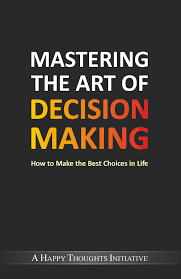Decision-making is an integral part of our daily lives. From choosing what to wear in the morning to making significant life-altering choices, we constantly face decisions that shape our present and future. However, decision-making can sometimes be challenging and overwhelming, leading to confusion and doubt. In this article, we will explore valuable tips to help you make sound and confident choices.
Before making any decision, it is crucial to clearly define your objective. Understand what you are trying to achieve and what outcome you desire. This step provides a sense of direction and narrows down the options, making the decision-making process more manageable.
To make informed decisions, gather all the relevant information. Research, analyze, and seek advice or opinions from trusted sources. The more information you have, the better equipped you are to evaluate the available alternatives and make a rational choice.
Evaluate the pros and cons of each available option. Make a list of the potential advantages and disadvantages of each alternative. Assess the potential benefits, risks, and consequences associated with each choice. This process helps in weighing the options and identifying the one that aligns best with your objectives.
While it is essential to gather information and analyze the facts, it is equally important to trust your intuition. Sometimes, your gut feeling can provide valuable insights that rational analysis may overlook. Pay attention to your instincts and inner voice when making decisions. It often leads to confident and successful outcomes.
Consulting others can provide valuable perspectives and insights. Seek advice from trusted friends, family, mentors, or professionals who have relevant expertise or experience in the area of your decision. Engage in meaningful discussions, listen to different viewpoints, and consider their input. However, remember that the final decision should ultimately be yours.
When making decisions, consider the long-term implications. Ask yourself how each choice may impact your future goals, relationships, and overall well-being. Avoid making decisions based solely on short-term gains or immediate gratification. Aim for choices that align with your values and contribute to your long-term growth and happiness.
Every decision involves an element of risk and uncertainty. Recognize that it is impossible to predict the future with absolute certainty. Instead of fearing or avoiding risks, embrace them with a calculated approach. Assess the potential risks, develop contingency plans, and be prepared to adapt if circumstances change. This mindset helps build confidence in your decision-making abilities.
Reflect on past decisions and learn from them. Analyze both successful and unsuccessful choices to understand what worked and what didn’t. Draw lessons from your experiences and apply them to future decision-making processes. This iterative approach helps you refine your decision-making skills and increases your chances of making sound choices.
Mastering the art of decision-making requires practice, self-reflection, and a willingness to learn. By defining your objectives, gathering information, considering pros and cons, trusting your intuition, seeking input from others, considering long-term implications, embracing risk, and learning from past experiences, you can make sound and confident choices. Remember, decision-making is a skill that can be honed over time, leading to better outcomes and personal growth.


